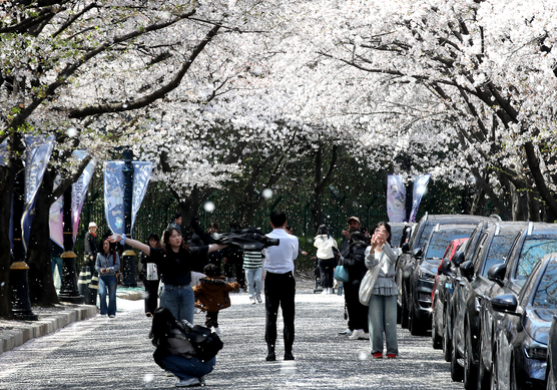Earlier Cherry Blossoms: Nature’s Alarm for Climate Change
페이지 정보

본문
In South Korea, cherry blossoms have always served as a seasonal marker—ushering in spring with delicate beauty and cultural celebration. However, in recent years, scientists and citizens alike have noticed a worrisome trend: cherry blossoms are blooming earlier than ever before. According to the Korea Meteorological Administration (KMA), the average first bloom date has advanced by approximately seven days over the past 30 years.
For example, in 2024, cherry blossoms in Seoul began blooming on April 6, which is four days earlier than the historical average (Park, 2024).
These earlier bloom dates are closely tied to rising spring temperatures. Cherry trees are extremely sensitive to temperature variations, and even a 1°C rise in average spring temperatures can accelerate blooming by several days.
Climate scientists are now using cherry blossom phenology—seasonal timing—as a natural bio-indicator of climate change. Data from Seoul, Jeonju, and Busan consistently show earlier peak bloom dates since the early 2000s.
This shift has ecological consequences. Pollinators such as bees and butterflies rely on synchronous timing with blooming flowers for survival. A mismatch between flower blooming and insect activity can cause disruptions in pollination cycles, potentially threatening biodiversity. Moreover, early blossoms are often more vulnerable to unexpected frost in late March or early April, which can damage flowers and reduce fruit yield later in the year.
Culturally and economically, the impact is also significant. Major cherry blossom festivals—like those in Jinhae and Yeouido—attract millions of visitors each year. However, organizers now face difficulties in predicting bloom dates and aligning event schedules. In 2024, strong winds and earlier blooming caused many cherry trees to shed their petals before peak festival weekends, dampening tourism and local business revenue (JoongAng Ilbo, 2024).
In short, earlier cherry blossoms may appear beautiful, but they also carry a warning. The changing rhythms of nature are subtle indicators that our environment is shifting—rapidly and irreversibly—due to human-induced climate change.
Reference : JoongAng Ilbo. (2024, April 6). Blustery winds may blow away cherry blossoms sooner than expected. https://koreajoongangdaily.joins.com/news/2025-04-06/national/socialAffairs/Blustery-winds-may-blow-away-cherry-blossoms-sooner-than-expected/2278852, Last visited : 2025 May 21
- PrevIntensifying Heatwaves: A New Climate Reality for South Korea 25.05.21
- NextEarlier Cherry Blossoms: Nature's Calendar is Changing 25.05.21
댓글목록
There are no registered comments.

